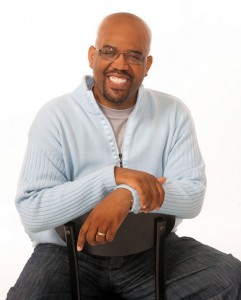While most Ithaca College students treat movie nights as a time to escape their academic lives, speaker Brian C. Johnson has built a career around encouraging students to take a second look at the cultural messages behind their favorite films.

Johnson, the director of the Frederick Douglas Institute for Academic Excellence and a faculty member in the department of developmental instruction at Bloomsburg University, will discuss the importance of human variety in “Reel Diversity,” a public presentation in which he analyzes diversity and its ubiquity in popular film at 11:30 a.m. Tuesday in Emerson Suites.
Contributing Writer Jamie Nash spoke with Johnson about diversity in pop culture, human interaction and film.
Jamie Nash: How did the idea for the “Reel Diversity” presentation develop?
Brian C. Johnson: “Reel Diversity” is a spin off of my book “Reel Diversity: A Teacher’s Sourcebook.” The book, which won the 2009 Book Award by the National Association for Multicultural Education, was designed to help teachers introduce diversity concepts into their courses.
JN: What should students expect to learn when they attend the “Reel Diversity” presentation next week?
BJ: It’s important for students to not be afraid to attend this presentation. Often diversity programs make people nervous, especially those who may be majorities, as they think it’s going to be about placing blame or trying to make people feel guilty. This program is open to all, for all and is about all. They should expect to laugh a lot and learn a lot. The primary goal is to help us all get more comfortable engaging with diversity of all types.
JN: What types of diversity are prevalent in popular American film?
BJ: We see diversity of all types represented in every single film we watch. “Reel Diversity” will explore race, gender, religion, sexual orientation, nationality, age, language and much more.
JN: What can looking at poplar modern films teach us about popular culture, especially when it comes to diversity?
BJ: We learn a lot about ourselves and
others through the media, especially film. Hollywood is a cultural force, and as such we need to possess the literacy skills to analyze, evaluate and interpret the films we watch.
JN: What are some of the individual films you will use in your presentation of “Reel Diversity” at Ithaca College?
BJ: I customize the program for just about every school that I visit. Some of my favorites to use in the presentation are: “South Park: Longer and Uncut,” “Talladega Nights,” “Knocked Up,” “The Matrix,” “Rush Hour,” “Little Mermaid,” “Finding Nemo,” “Harold & Kumar Escape Guantanamo Bay” and “Avatar.”
JN: How can students begin to see diversity as an opportunity to become more familiar with other peoples and cultures, rather than a problem to be solved?
BJ: The challenge is to move beyond the surface elements that we assume divide us. We are more alike than we are different, no matter the dimension of diversity. Once we move beyond the strangeness to genuine respect and better communication, we will move forward with harvesting the benefits of our diverse communities.
JN: How can learning about diversity change the way people interact with others?
BJ: One of the single greatest benefits of engaging with those who are different from us is that we actually learn more about ourselves. The more we know about ourselves, the better we are about engaging with others.




